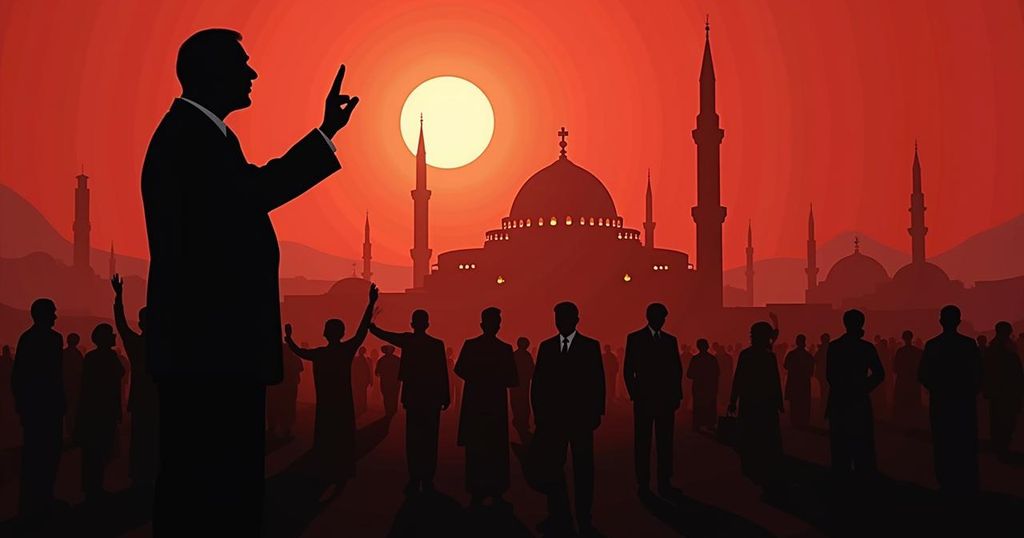Tunisia’s Rigid Electoral Landscape: A Nation’s Struggle for Democracy
President Kais Saied is set to dominate Tunisia’s presidential election amid widespread political repression that has silenced opposition and diminished the hopes for genuine democracy. With his leading rival imprisoned and other candidates removed from contention, the election lacks the hallmarks of democratic participation, leaving many Tunisians disillusioned with the political process that followed the Arab Spring.
As Tunisia approaches a presidential election, the prevailing sentiment among citizens is one of resignation and disillusionment. President Kais Saied, whose administration has systematically eliminated political opposition and concentrated power within the executive branch, stands almost assured of electoral victory. Signs of a contested election are virtually nonexistent; there are minimal campaign materials and no public debates scheduled. Mr. Saied has seemingly chosen not to engage in policy discussions, underlining his confidence in the outcome. His primary rival is imprisoned on what are described as fabricated charges, facing multiple sentences that extend as long as twelve years. Furthermore, several other potential candidates are either incarcerated or have been barred from participating in the election process. In the aftermath of the protests that dismantled the regime of Zine El-Abidine Ben Ali over a decade ago, the initial hope for democratic reforms has significantly deteriorated. The current political climate suggests a regression in democratic practices, as Tunisians witness the consequences faced by dissenters. “He is willing to do anything it takes to stay in power — dividing Tunisians, prosecuting them, accusing them,” stated Souhaib Fercheche, a young civic activist. The promise of democratic governance and improved living conditions, once vibrant in the Arab Spring narrative, has largely gone unfulfilled, diminishing the public’s belief in their democratic institutions.
This article discusses the political landscape in Tunisia in the lead-up to an election dominated by President Kais Saied. Since the Arab Spring movement, which began in Tunisia in 2010, the country has struggled to maintain a democratic framework. The current electoral environment is characterized by repression, with notable political figures jailed and the election process heavily skewed in favor of the incumbent. This reflects a broader trend in which democratic aspirations have fallen short in Tunisia, leading to a prevailing atmosphere of skepticism about the effectiveness of the democratic process.
The forthcoming presidential election in Tunisia is marked by a troubling lack of genuine competition and widespread political repression. With President Kais Saied likely to secure another term, the hopes of Tunisians for a vibrant democracy remain in jeopardy. The situation calls attention to the dangers of autocracy in a nation that once served as a beacon of hope during the Arab Spring. Without meaningful change in governance and a restoration of political freedoms, the cycle of disillusionment among the populace may only deepen.
Original Source: www.nytimes.com




Post Comment